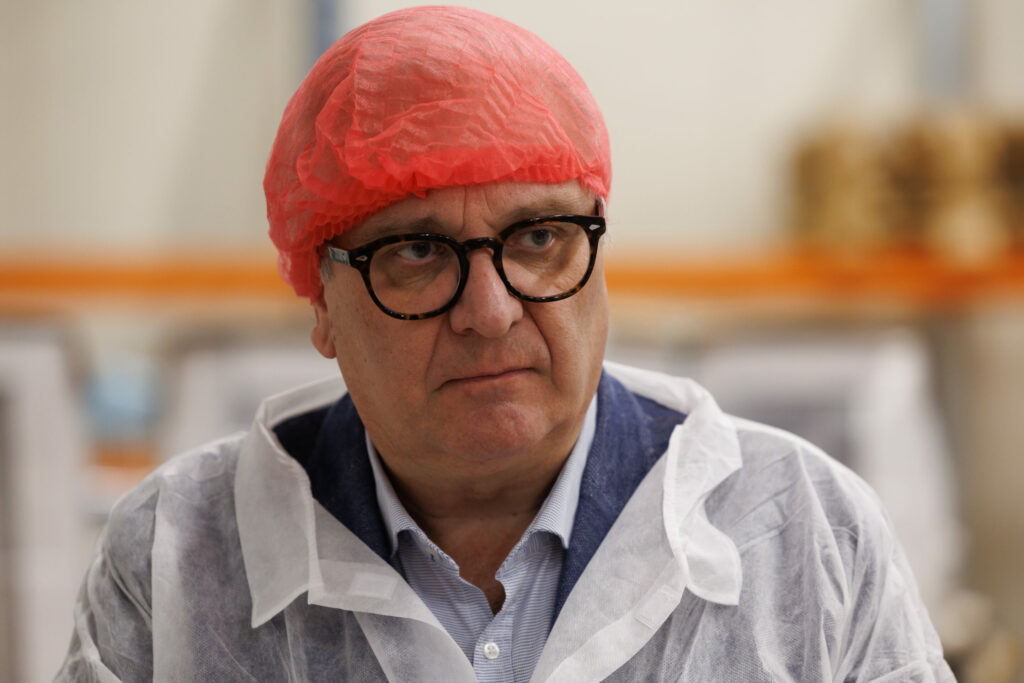Prince Laurent's request to be registered with a social security fund was declared unfounded on Monday by the French-speaking labour court of Brussels. This denies the Prince's access to social security, on top of his €388,000 royal salary.
Although Prince Laurent receives an annual allowance of €388,000 as a senior civil servant who carries out representative tasks, he also does business as a self-employed person. In this capacity, he is not entitled to compensation in the event of incapacity for work or bankruptcy, or to assistance in certain family situations, the court decided.
Laurent recently submitted an application to the social security fund of the Union des Classes Moyennes (UCM), but when the UCM tried to register him with the National Institute for Social Security for the Self-Employed (RSVZ), the registration was refused.

Prince Laurent of Belgium answers questions after the Te Deum mass, on the occasion of the King's Feast, at the Saint Michael and St Gudula Cathedral, in Brussels, Friday 15 November 2024. Credit: Belga / Benoit Doppagne
According to the most recent amendment of the law (2013), beneficiaries of an endowment "do not fall under the status of employees, nor under the status of the self-employed, nor under the status of civil servants."
Citing complaints about high hospital bills and worries about his family's financial future, Laurent – who has received the reputation of being the Royal Family's enfant terrible over the years – demanded access to Belgium's social security.
Previously, Laurent considered applying for Italian citizenship, which if granted would not "automatically" affect his State allowance. His plan included moving to Italy – his mother (and former Queen) Paola’s birthplace – and applying for dual nationality. This, however, raised questions about the potential impact on the prince’s allowance.
Why does Laurent want access to social security?
Due to his endowment (an amount he receives annually from the Federal Government), Laurent has a separate status. He does not fall under traditional categories: civil servant, employee or self-employed. Therefore, he does not have a pension, and the conventional health insurance system does not cover his family.
However, Laurent and his wife Claire experienced many health problems in recent years. While they can take out health insurance, they must do so privately. Another primary reason Laurent is so keen to become officially self-employed is a pension: he gets his endowment until he dies, but he worries about his family.
When he dies, Claire (who does not work) cannot claim a survivor's pension like widows and widowers of self-employed people. Nor does she get an endowment herself. However, nothing stops the family from already setting aside or investing part of the endowment to live on after Laurent's death.
"It is not a question of resources but of right," he said. The annual endowment he receives amounts to €388,000. €90,000, his gross salary is the amount he pays taxes. The rest are to use "operating and personnel expenses."

Prince Laurent of Belgium pictured during a royal visit to the Libeert chocolate factory in Komen (Comines), 2023. Credit: Belga/Kurt Desplenter
The endowment is indexed like ordinary salaries and is meant to cover all expenses. Additionally, Laurent lives for free in the Clementine villa built for him in Tervuren (just outside of Brussels), owned by the Royal Trust.
In exchange for that endowment, Laurent represents the Royal Family at ceremonies and celebrations. The condition for receiving it is that he cannot have any other income. This means Laurent could refuse the endowment and go to work, granting him immediate access to social security.
The same would be the case if Claire went to work. In that case, the family could claim traditional health insurance, and Claire would build up her own pension. She worked as a surveyor but stopped after her marriage to Laurent in 2003.

